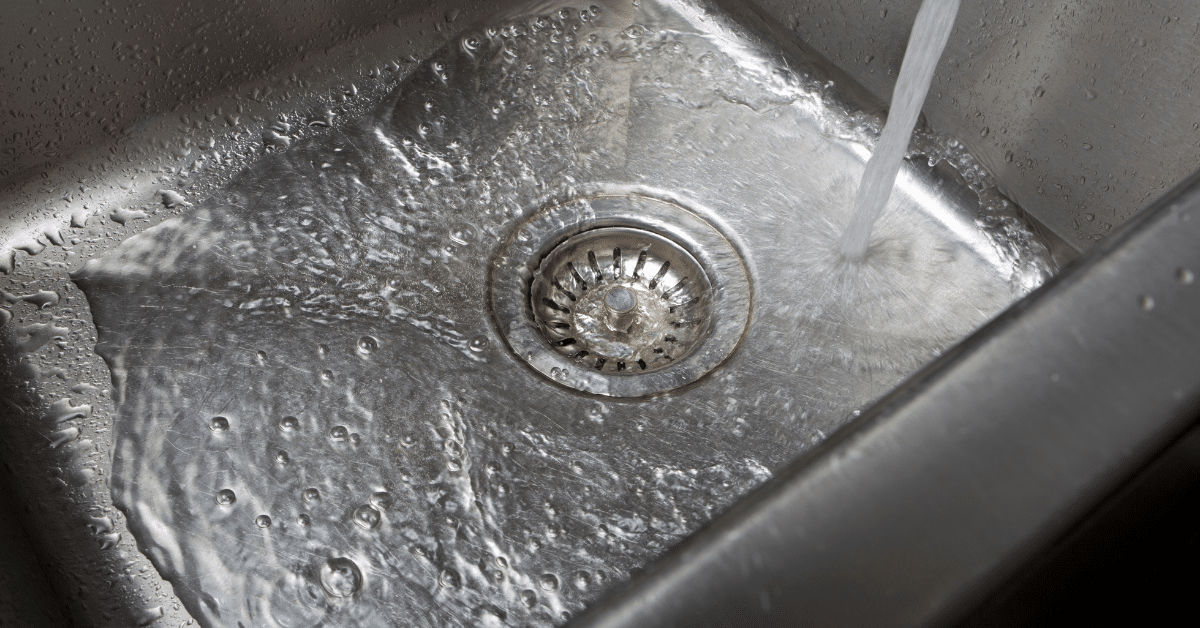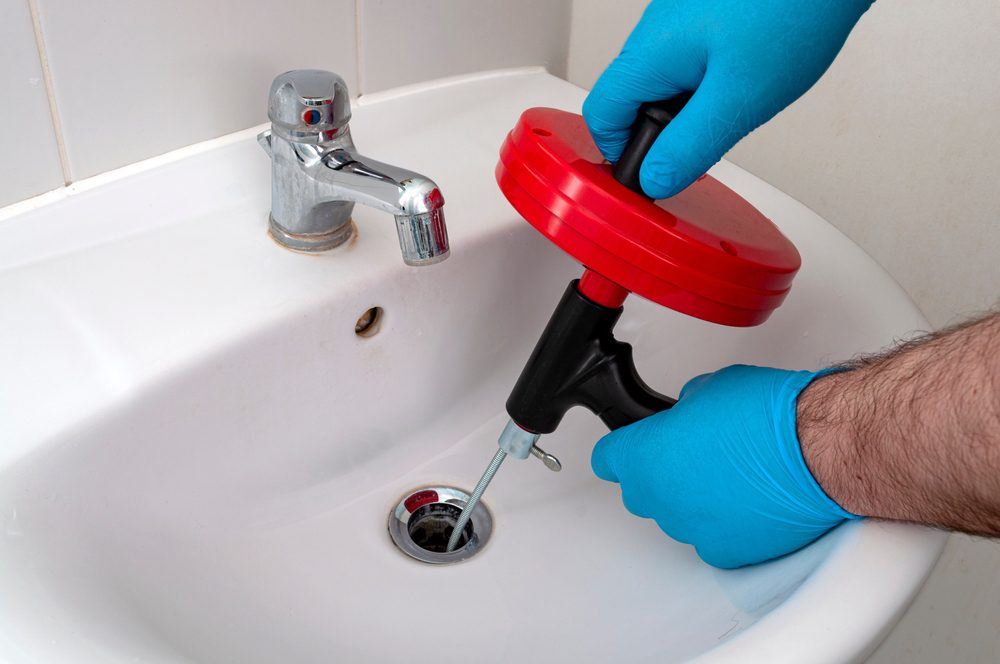How To Quickly Address A Slow-Draining Sink
How To Quickly Address A Slow-Draining Sink
Blog Article
What are your thoughts regarding Solved! How to Fix a Slow Sink Drain?

Intro
We have actually all been there: You're cleaning your teeth or cleaning your hands, and you discover the water pooling in the sink. Instead of swiftly swirling away, it remains, turning your once-refreshing early morning regimen into a mini overload scene. A slow-draining sink isn't just irritating; it's frequently a sign of bigger pipes problems prowling below the surface area. Fortunately is that many slow-draining sinks can be taken care of with a little expertise, a few fundamental devices, and some patience. Prepared to tackle this project head-on? Allow's roll up our sleeves and dive right in.
Understanding the Reasons For a Slow-Draining Sink
Before you start poking around in your pipelines, it assists to recognize what might be causing the stagnation. Understanding the origin makes it much easier to pick the best fix.
Devices and Products You'll Require
The right tools make all the distinction. Fortunately, you will not require a fully stocked plumber's van to get the job done.
Step-by-Step Overview to Fixing a Slow-Draining Sink
Currently, allow's enter into the nitty-gritty. This detailed procedure will assist you with easy strategies to restore your sink's drainage.
Action 1: Get Rid Of and Clean the Stopper
Typically, the stopper (that tiny plug you lower to block water) is the initial culprit. Remove it very carefully and clean off any hair or substance entraped around its base. Wash it thoroughly before placing it back in place.
Action 2: Use a Bettor to Dislodge Debris
Got that plunger prepared? Position it over the drainpipe and provide it a couple of firm pumps. The idea is to produce suction that can loosen any type of clog. If you see littles debris drifting up, you get on the ideal track.
Action 3: Try a Drainpipe Snake or Wire Hanger
If the bettor does not suffice, it's time to highlight the drainpipe snake. Gently feed it into the drainpipe and spin as you go. You might feel some resistance-- that's most likely the clog. Keep turning and drawing up until you remove the obstruction. If you don't have a drainpipe serpent, an aligned cable wall mount can work in a pinch.
Tip 4: Use a DIY Drain Cleanser
An all-natural cleaner made from baking soda and vinegar can break down recurring grime. Pour half a mug of cooking soda into the drainpipe, adhered to by half a mug of vinegar. Let it fizz for around 15 mins, after that flush with hot water. This chemical reaction typically does wonders for small obstructions.
Step 5: Reconstruct and Examine the Sink
Put whatever back with each other and run the tap. Does the water now swirl down the tubes at a reputable speed? If yes, offer on your own a pat on the back. If not, don't misery-- there are still a couple of more dress up your sleeve.
Necessary Devices for DIY Services
A bettor is your go-to starting point. A little, sink-sized plunger creates suction that can remove minor obstructions. For even more persistent obstructions, a drainpipe snake (in some cases called a plumbing technician's auger) functions wonders. A set of gloves, a flashlight, and perhaps a pair of safety goggles are likewise helpful.
Recommended Cleansing Solutions
Mild meal soap and warm water can assist break down oily build-up. A mix of baking soft drink and vinegar is a tried and true home remedy, and chemical cleaners use a more environmentally friendly technique. Keep chemical drainpipe cleansers as a last option, as they can be extreme on your pipes.
Common Offenders Behind Slow Water Drainage
So, what's blocking things up? Commonly, it's a mix of daily particles-- assume hair, soap residue, tooth paste residue, and leftover food fragments. Gradually, these tiny bits gather and hold on to the pipe wall surfaces, progressively tightening the flow and making it harder for water to travel through. In many cases, natural resource from tough water can additionally include in the gunk, creating the perfect tornado for stubborn obstructions.
When is it Time to Do Something About It?
If you discover the water draining pipes slower than typical, it's an excellent idea to intervene quicker instead of later on. Waiting as well long can bring about finish blockages, undesirable odors, or even pipe damages. If the water takes greater than a few seconds to clear out after switching off the tap, consider it a red flag and prepare yourself to put on your do it yourself hat.
Security First: Safety Measures and Preparations
Before you launch into unclogging mode, think of safety. You're handling possibly dirty water and debris, so slip on a set of gloves. If you're utilizing chemical cleaners, guarantee the space is well-ventilated and adhere to the guidelines on the tag.
Safety Gear and Office Configuration
Lay down some old towels or rags around the sink location to catch dashes. Remove any products that might get in your means, like soap dispensers or tooth brush holders. See to it you have great lighting-- get a flashlight if needed.
Different Methods for Stubborn Clogs
Not all clogs are developed equal. If your sink still declines to comply, think about these alternate remedies.
Sodium Bicarbonate and Vinegar Approach
We already touched on this, but it's worth noting again. This gentle, environmentally friendly technique is more secure than chemical cleaners and frequently quite reliable.
Enzymatic Drain Cleansers
Enzyme-based cleaners utilize natural bacteria to absorb raw material. They're an outstanding selection if you're looking to stay clear of harsh chemicals. Simply remember, they might take a bit longer to work their magic.
Chemical Drain Cleansers: Advantages And Disadvantages
Chemical cleansers can blow up via difficult clogs fast, however they're not without drawbacks. They can produce warm and fumes, damage pipelines if utilized excessively, and position environmental dangers. Use them moderately, and always follow the instructions carefully.
Safety Nets to Maintain Your Sink Flowing
Avoidance is the best remedy. By adopting a couple of basic practices, you can keep your sink from decreasing to begin with.
Regular Cleaning Up Behaviors
Wipe down the sink basin and component location regularly. Get rid of hair or food particles before they have a possibility to wash down the drainpipe.
Preventing Hazardous Compounds Away
Reconsider prior to unloading coffee premises, grease, or coarse veggie scraps down the sink. These wrongdoers hold on to pipeline walls, developing obstructions over time.
Regular Upkeep Checks
Schedule a fast regular monthly evaluation. Run warm water via the sink for a few mins, paying attention to the circulation. If it seems slow-moving, act fast prior to it becomes a full-blown clog.
When to Call a Professional Plumbing
In some cases, no matter exactly how hard you attempt, that block just will not budge. That's when it's time to generate the pros.
Signs That Show a Much More Severe Issue
If your sink drains gradually despite several efforts, or if you see water backing up in other fixtures (like your shower or commode), you may have a much more significant plumbing issue hiding much deeper in the system.
Stabilizing Do It Yourself Efforts with Expert Aid
While DIY can conserve you money and supply a feeling of accomplishment, there's no pity in calling a professional. A specialist plumbing technician can assess your whole pipes arrangement, ensuring there's no underlying damages or lasting problem that can cost you more in the future.
Comparing Expenses and Long-Term Solutions
Prior to choosing, consider the big picture. An economical, quick fix might solve the trouble briefly, however buying an extra irreversible service can save you cash and stress in the long run.
Evaluating the Expenses of Do It Yourself vs. Expert Fixes
Do it yourself fixes typically set you back little bit greater than the rate of a plunger or a container of cooking soda. Professional services, on the other hand, come with a cost yet might avoid repeated concerns and expensive repair work later on.
Investing in Top Quality Fixtures and Upgrades
If your sink's design adds to constant blockages, it might be worth updating to higher-quality components or altering the plumbing format. Consider this an investment in your house's functionality and comfort.
Verdict
A slow-draining sink can seem like a small irritability, but it's frequently an indicator that your plumbing requires a little tender loving care. By comprehending the root causes, using the right tools and methods, and committing to basic safety nets, you can keep your sink moving freely. And when all else falls short, never ever think twice to hire an expert-- your home's plumbing is worth the investment in treatment and maintenance.
Three Common Ways to Fix a Slow Drain
Baking Soda Method
Boil a full pot of water. Measure out cup of baking soda and pour it down the drain. Then take cup of the magical cleansing substance known as white vinegar and drop that down there too. Allow the mixture to fizz in the drain for five minutes as the vinegar and baking soda combine. Now dump in that whole pot of boiling water. This combination of cleaning substances should clear out anything that is causing your sink to drain slowly. If it doesn t...
Zip-It
If the baking soda method doesn t clear out your drain, it may be because a significant amount of hair and/or other debris has collected there and you need to remove it. Purchase a Zip-It tool at any home improvement or hardware store and insert it into your drain. It will catch any collected hair or debris that s blocking the flow of water. Pull it out. If it s got a big clump of hair, etc. on the end, you ve probably got your culprit.
Drain Cleaner
If these methods don t work, there is the standard drain cleaner that you can also buy in a hardware store or even your local grocery store. It s better if you can use a household solution, but these drain cleaners often work in a pinch. They re very simple to use. You generally just dump them in your drain and wait. If even this method is not effective, it may be time to call the plumber.
https://www.mrrooter.com/oneida/about-us/blog/2017/july/three-common-ways-to-fix-a-slow-drain/

Do you appreciate more info about Solved! How to Fix a Slow Sink Drain? Put feedback below. We'd be pleased to see your thoughts about this review. We hope that you come back again soon. Are you aware of someone else who is enthusiastic about the niche? Do not hesitate to share it. Thanks for taking the time to read it.
Request An Appointment Report this page